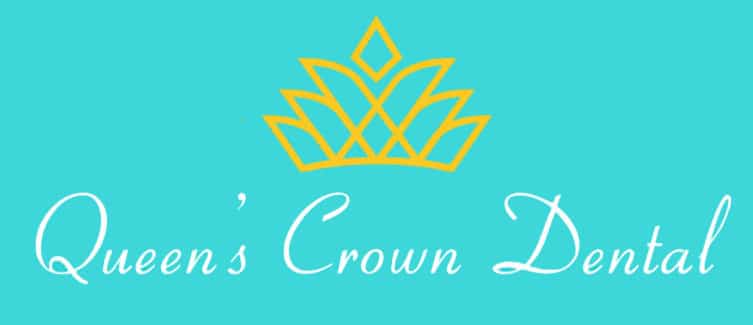When Do You Need an Emergency Dentist? 7 Signs You Shouldn’t Ignore

Sometimes, dental issues arise when we least expect them. While some problems can wait until your next routine visit, others require immediate attention to prevent further complications. Knowing when to seek an emergency dentist can make all the difference in protecting your oral health.
Here at Queen’s Crown Dental, we believe in empowering our patients with the knowledge to respond to dental emergencies. If you're wondering which dental situations require urgent care, keep reading. Here are 7 signs you shouldn’t ignore when it comes to your teeth and gums.
1. Severe Tooth Pain
Intense tooth pain is often a warning sign of an underlying issue, such as a deep cavity, infection, or an exposed nerve. If over-the-counter pain relievers and home remedies aren’t helping, it’s time to contact an emergency dentist. Left untreated, this discomfort can worsen and lead to more serious complications, like abscesses.
Don’t tough it out or hope the pain will go away on its own. Tooth pain, especially when severe, is your body’s way of signaling that something isn’t right.
2. A Knocked-Out Tooth
A knocked-out tooth requires immediate attention if you want to save it. Time is critical; dentists often recommend getting care within 30 minutes to increase the chances of successfully reimplanting the tooth.
If this happens to you, handle the tooth by the crown (never the root), gently rinse it with water if dirty, and try placing it back in the socket. If that’s not possible, store it in a container of milk or a tooth-preservation product until you see a dentist.
3. Cracked, Chipped, or Fractured Tooth
Accidents happen, and sometimes they leave us with chipped or cracked teeth. While minor chips may not seem urgent, larger cracks or fractures can expose the tooth’s inner layers to bacteria, leading to infections or decay.
An emergency dentist can assess the severity of the damage and recommend treatments such as bonding, crowns, or root canal therapy to restore your tooth and prevent further issues.
4. Swollen Gums or Face
Swelling in your gums, jaw, or face often indicates an infection, such as a gum abscess or an advanced stage of gum disease. Left untreated, infections can spread to other parts of your body, posing serious health risks.
If you notice persistent swelling, particularly with accompanying signs like fever, a bad taste in your mouth, or difficulty swallowing, seek help immediately.
5. Uncontrolled Bleeding
Dental injuries, whether from accidents or sports, can sometimes lead to uncontrolled bleeding. While minor cuts or bleeding gums might stop after rinsing or applying pressure, more severe bleeding can indicate damage to your oral tissue or blood vessels.
If bleeding persists despite your best efforts to stop it, it’s crucial to reach out to an emergency dentist for proper care.
6. Loose or Dislodged Dental Work
Crowns, fillings, or bridges that come loose need prompt attention. Ignoring them could lead to further damage to your tooth, pain, or even bacteria entering exposed areas.
Your dentist can quickly repair or replace the dental work to ensure the integrity of your tooth and continued protection against decay.
7. Persistent Abscess
A dental abscess is a pocket of pus caused by a bacterial infection, often stemming from an untreated cavity or gum disease. Abscesses can cause severe pain, a foul taste, swelling, fever, and sensitivity.
An abscess isn’t just damaging to your teeth and gums; if left untreated, it can spread to other parts of your body, leading to life-threatening conditions. Treating it quickly with antibiotics and drainage prevents further complications.
What to Do If You’re Facing a Dental Emergency
Recognizing the signs of a dental emergency is only half the battle. Knowing where to turn is equally important. If you're experiencing any of these symptoms, visit our page about dental emergencies. Queen's Crown Dental provides expert care to resolve urgent concerns and safeguard your oral health.
Frequently Asked Questions About Dental Emergencies
What qualifies as a dental emergency?
A dental emergency is any issue involving your teeth or gums that requires immediate attention to relieve pain, stop bleeding, or prevent worsening conditions. Common dental emergencies include severe toothaches, knocked-out teeth, cracked teeth, and abscesses. If you're unsure whether your situation qualifies as an emergency, it’s better to err on the side of caution and contact a professional.
How can I prevent dental emergencies?
While not all emergencies can be avoided, some preventive measures include maintaining a good oral hygiene routine, scheduling regular dental check-ups, wearing a mouthguard during sports, and avoiding hard foods that can crack teeth. Addressing minor dental problems promptly can also prevent them from escalating into emergencies.
At Queen’s Crown Dental, we’re here to help you protect your oral health, no matter the situation. Located in Honolulu, our dedicated team provides comprehensive care tailored to your needs, including dental emergencies. Visit schedule an appointment today to take proactive care of your smile!

